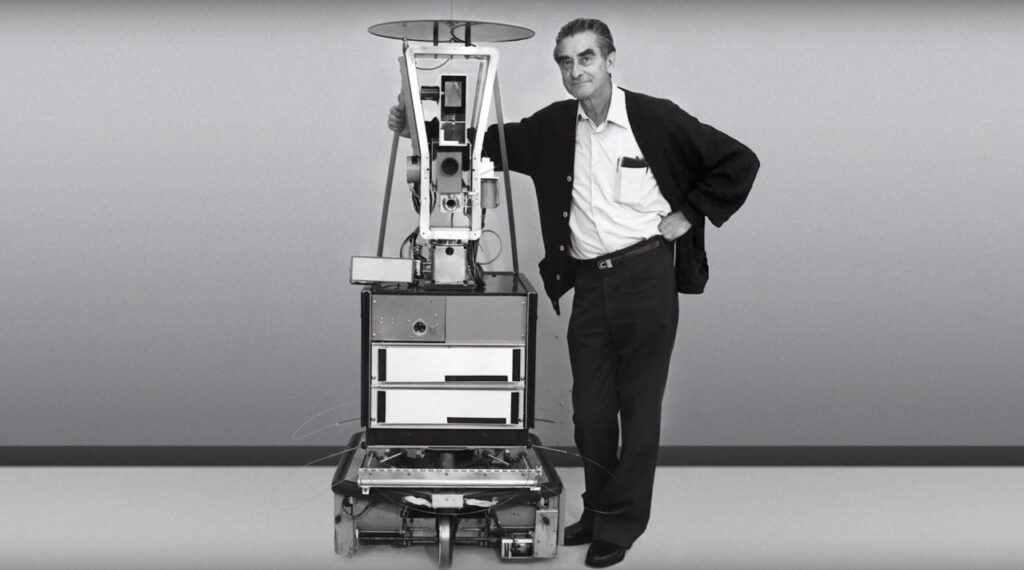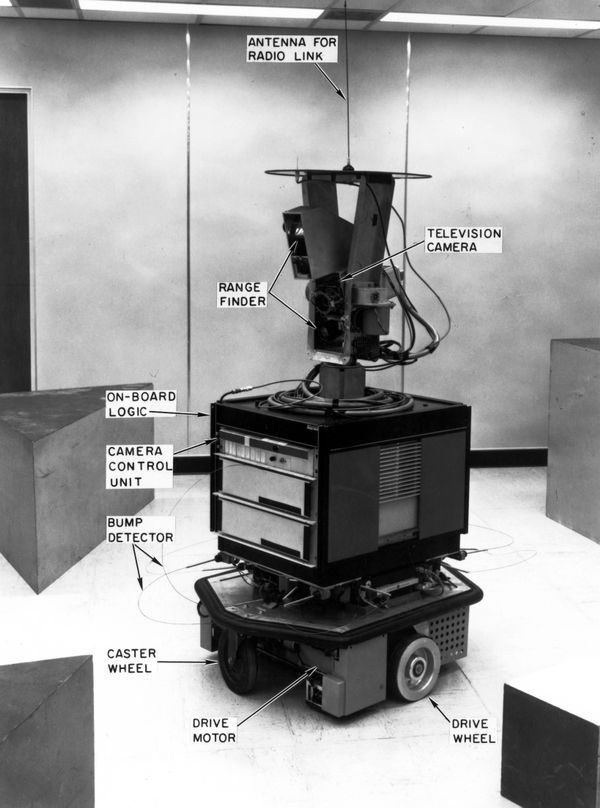History of Shakey the Robot
Shakey the robot was created in the late 1960s at the Stanford Research Institute (SRI) by Charles Rosen, Nils Nilsson, and Peter Raphael. The project was funded by the Advanced Research Projects Agency (now called DARPA). Shakey was one of the first robots that could move and think on its own from basic commands in a simple environment.


Understanding Shakey’s Working Principles
Shakey’s actions worked by combining sensors, motors, and smart software. It had a camera and bump sensors to help it navigate and motors to move. Shakey could see its surroundings, make maps, and decide what to do based on what it saw.
*bump sensors – датчики удара
The Purpose Behind Creating Shakey the Robot
The main purpose of creating Shakey the robot was to be the first robot to make decisions on its own using logical thinking. The project aimed to show how robots could interact with their surroundings using artificial intelligence. Shakey was an experiment to see how machines could see, learn from, and respond to the world, helping future progress in robotics and AI.
Exploring Shakey’s Applications and Uses
At first, Shakey was used for research to test ideas in mobile robotics and AI. It helped develop basic AI concepts like planning routes and avoiding obstacles. Shakey could understand and follow high-level commands, showing new ways of decision-making without human help. This work resulted in the creation of more advanced robotic systems in the future.
Positive Aspects
- Led the integration of hardware and software in robotics.
- Developed foundational AI techniques used in robotics.
Negative Aspects
- Shakey moved very slowly and clumsily.
- It required a very controlled environment to operate effectively.
Technological Innovations
Shakey introduced several technological advancements:
- It was one of the first earliest robots to use SLAM (Simultaneous Localization and Mapping).
- It played a significant role in the development of robot planning systems.
Conclusion
Certainly, Shakey the Robot was an important milestone in the history of robotics and artificial intelligence. Despite its limitations, moreover, it set the foundation for future developments in autonomous robots and continues to be a classic example of early AI integration into robotic systems.
*milestone – этап (stage)
*Despite – несмотря (against)
